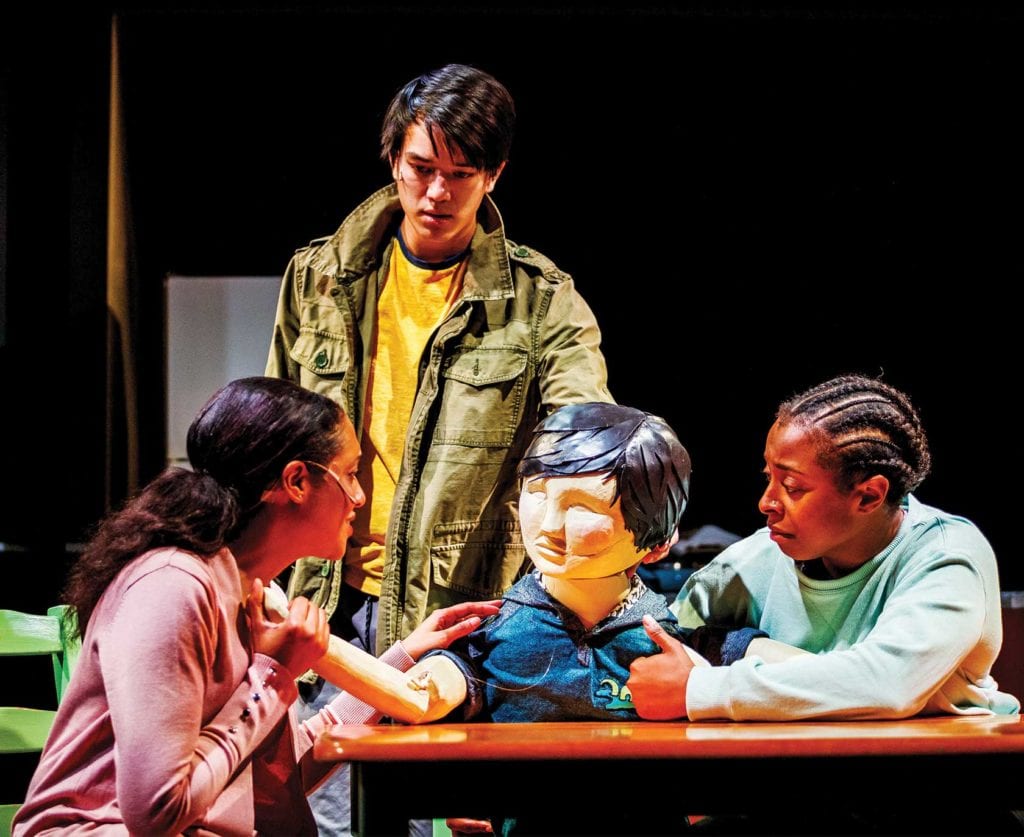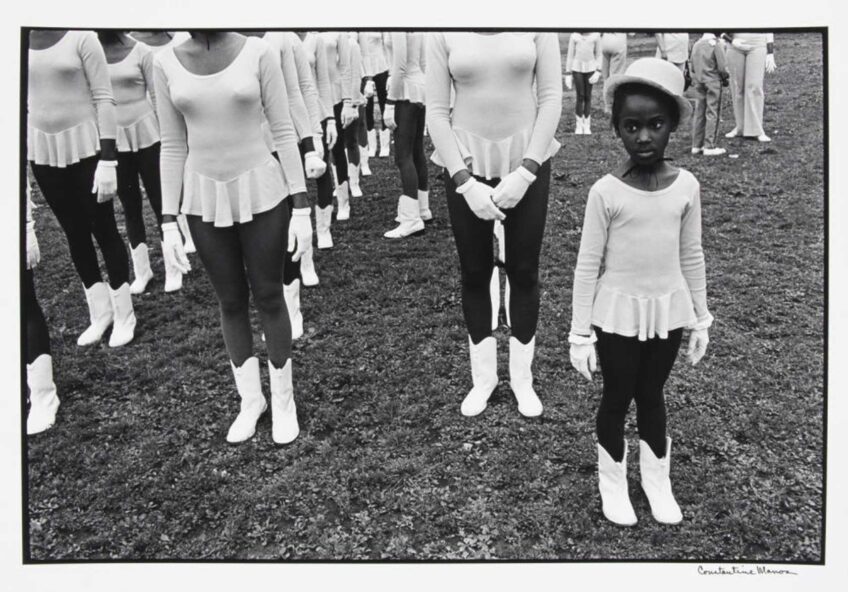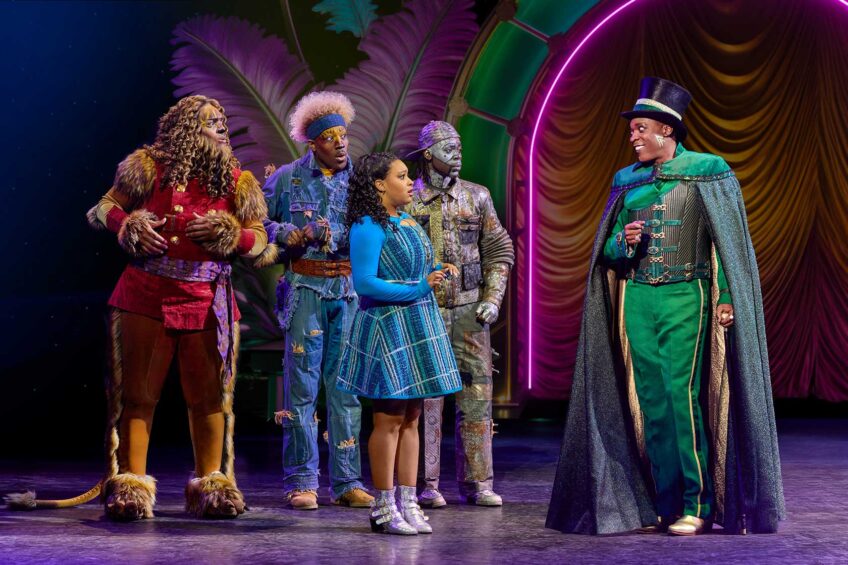
While strolling through the Boston Public Library’s Central Branch this month, you may hear the tortured howl of a wolf coming from Rabb Hall. Don’t be alarmed; it’s just Company One Theatre breaking down complicated adoption dynamics in their show “Wolf Play,” a new production by South Korean playwright Hansol Jung running at the library through Feb. 29. The spectacular piece of theater is open to the public with pay-what-you-will pricing for every single performance.
Though her wife Ash hasn’t fully consented, Robin is desperate to adopt a baby — desperate enough to engage in an under-the-table adoption, via the internet, of an 8-year-old Korean boy. This process, known as re-homing, is a very real measure often used to bypass the high financial cost of adoption or barriers for same sex-couples or single parents. The boy’s name is Jeenu, and his boy self is represented by a life-size puppet. The hilarious and energetic actor Minh-Anh Day narrates the boy’s inner dialogue, in which he sees himself as a lone wolf searching for a pack.
At the forefront of the show is the trauma Jeenu has experienced from being moved from home to home, not only in a different country, but also among different families. Jeenu was originally adopted from Korea by a white family (presumably legally, but it’s not confirmed). It’s that family that re-homes him to Ash and Robin when things get too overwhelming for them. But when the white adoptive father, Peter, learns that Ash and Robin are a lesbian couple, he regrets his choice.
Though there’s substantial comedy in Jeenu’s mask as a wolf, that protective coating hides a deep-seated inability to trust. While Ash and Robin attempt to create a supportive, loving environment around Jeenu, Robin’s brother Ryan insists that he needs to be “roughed up” and have the influence of a man in his life. This violence masquerading as masculinity causes tension in the house.
The heart of the performance explores what it means to be a family, or a pack, as Jeenu would say. Ash, Robin and Jeenu cross cultural and racial differences, and the flawed adoption system, to create a space of love and connection.
Day is a comedic and emotional force as the protective wolf inside Jeenu. The use of the puppet works wonders to illustrate at once how little control Jeenu has over his circumstances and the narrative he’s created inside himself to feel empowered. The duo illustrates seamlessly how acts of aggression from a displaced child often are coming from places of protection either for themselves or for an adult who has guarded them.
“Wolf Play” is an unending onion of critical layers. But through the sincerity of the actors and the directing prowess of Summer L. Williams, the many emotions and plotlines flow together into a painfully beautiful piece of work.








